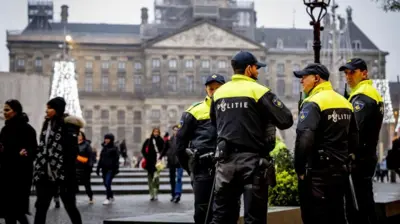We've updated our Privacy and Cookies Policy
We've made some important changes to our Privacy and Cookies Policy and we want you to know what this means for you and your data.
State schools to offer international GCSE exams
Image source, bbc
- Author, Hannah Richardson
- Role, łÉČËÂŰĚł News education reporter
State schools are to be allowed to teach international GCSEs in a shake-up of England's qualifications system.
The exams, used by a growing number of independent schools, have not previously been approved for maintained schools.
Ministers also said they would not be going ahead with three academic diplomas planned for 2011.
The ATL teachers' union described the coalition government's changes as "neanderthal".
Diplomas in science, languages and humanities had been planned to add academic rigour into the vocational qualifications, which have had a shaky start since their introduction in 2008.
By offering the part-practical, part-theoretical qualifications in academic subjects as well as more vocational ones, the former Labour administration had hoped to make the diploma more attractive to academically brighter pupils.
Former children's secretary Ed Balls had said he wanted diplomas to become the qualification of choice.
But this move by the new government leaves a question mark hanging over the qualification which has already struggled to make headway against A-levels and GCSEs.
Schools Minister Nick Gibb said it would save ÂŁ1.77m, with further savings ahead.
But he suggested the changes to exams were driven by ideological rather than financial concerns.
"After years of political control over our exams system, schools must be given greater freedom to offer the qualifications employers and universities demand, and that properly prepare pupils for life, work and further study," he said.
"For too long, children in state maintained schools have been unfairly denied the right to study for qualifications like the IGCSE, which has only served to widen the already vast divide between state and independent schools in this country.
"By removing the red tape, state school pupils will have the opportunity to leave school with the same set of qualifications as their peers from the top private schools - allowing them to better compete for university places and for the best jobs."
Old O-levels
He said it was not for government to decide which qualifications pupils should take or to develop new ones.
This was why he was "stopping development of the state-led 'academic diploma' in humanities, sciences and languages from today", he said.
"Instead, we will devote our efforts to making sure our existing qualifications are rigorous, challenging and properly prepare our young people for life, work and study," he added.
State schools would not get extra money to teach the IGCSEs, but could use their existing budgets to offer them.
The IGCSEs resemble the old O-levels, with more essay-based questions. They are popular with those who have concerns about regular GCSEs lacking in challenge for brighter pupils.
Mr Gibb also said he would allow IGCSE results to be included in school performance tables as soon as possible.
Good grounding
A number of top performing secondaries had expressed an interest in offering these exams, the Department for Education said.
And some independent schools have stopped offering regular GCSEs altogether.
On the primary curriculum, Mr Gibb said: "A move away from teaching traditional subjects like history and geography could have led to an unacceptable erosion of standards in our primary schools.
"Instead, teachers need a curriculum which helps them ensure that every child has a firm grasp of the basics and a good grounding in general knowledge, free from unnecessary prescription and bureaucracy.
"It is vital that we return our curriculum to its intended purpose - a minimum national entitlement organised around subject disciplines."
Association of School and College Leaders general secretary Dr John Dunford said the current diploma structure was far too complicated and did need simplification.
Pupil premium
"Many school leaders have put considerable time and effort into preparing for these diplomas and will be disappointed that they are being abandoned before a full review takes place."
The Association of Teachers and Lecturers called the changes "neanderthal", adding, "education in England remained locked in the 19th Century and out of step with the rest of the world".
Education Secretary Michael Gove announced further details of the ÂŁ670m in budget cuts planned for his department.
On top of those savings he has already announced, Mr Gove said he was scrapping the proposed extension of pilots of free school meals for primary schools, saving ÂŁ125m.
Scrapping the new primary curriculum would save ÂŁ7m
And he confirmed that extra money would be made available outside the DfE's budget to pay for a "pupil premium" - money which follows poorer pupils. But he did not say how much would be invested.
The premium was a key plank of the coalition government's agreement.
Top Stories
More to explore
Most read
Content is not available








